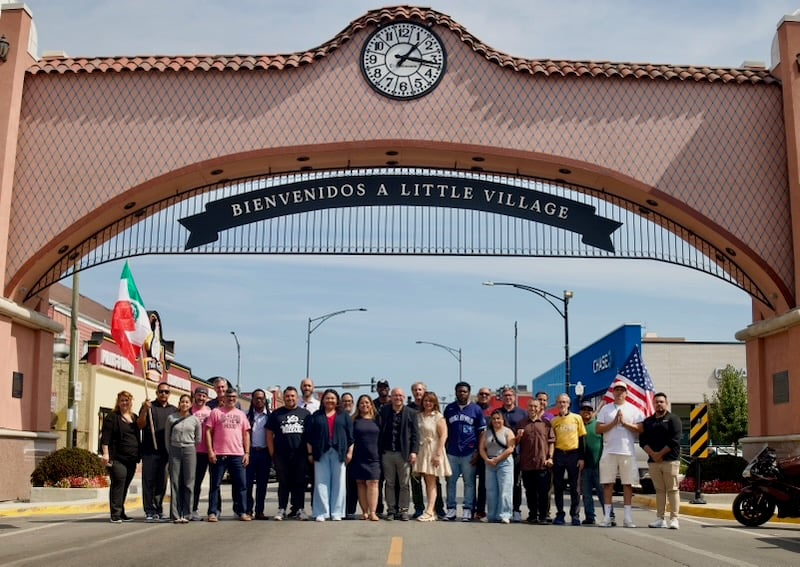Undermining the Violence of Polarization
Principles and practices for a politics of forgiveness

The following reflection is adapted from a workshop I led with my fantastic co-presenter, Edgar Torres, at The Covenant Justice Conference last weekend.
In his introduction to Born from Lament: The Theology and Politics of Hope in Africa, Fr. Emmanuel Katongole contrasts the “politics of violence” which characterize so much of contemporary life with the “politics of forgiveness,” the church’s “alternative form of politics, one that is committed to saving and serving the very lives that are often wasted within the power struggles” of modern politics. While Katongole is thinking about the continent of Africa, his observation is applicable more broadly.
This week Charlie Kirk, a right-wing organizer, pundit, and provocateur, was murdered while speaking at a university in Utah. Kirk, a very public Christian, practiced a kind of politics of violence which characterized his ideological opponents as enemies to be feared and defeated; I have friends who were the collateral damage of his violent rhetoric. As my friend Richard Wilson wrote earlier this week, we do not have to lie about the terrible impact of Kirk’s influence to authentically lament his death.
There have been many other instances of political violence in recent years, including against our current president and other elected officials. There is also a strain of right-wing American Christianity, often associated with Christian Nationalism, which has adopted a politics of violence to describe the need to dominate and defeat their political, ideological, and theological rivals.
Those of us who desire to foster a politics of forgiveness might feel like our commitments are easily overwhelmed by the violence of this age. But this is precisely the time when we need to do everything possible to root ourselves in this alternative form of politics. And for those of us who find our identity and the world’s ultimate logic in the life, death, and resurrection of Jesus, there is no alternative; a politics of violence was foreclosed to us 2,000 years ago.
To begin with, we need to be clear about the difference between partisanship and politics. According to one definition, a partisan exhibits “strong and sometimes blind adherence to a particular party, faction, cause, or person.” Oftentimes, when Christians talk about politics we’re often thinking about partisanship. And given that all of this world’s partisan organizations are infected to some degree by the politics of violence, a Christian will never be fully at home in any political party.
Politics, on the other hand, are how a community of any kind – a family, church, nation, etc. – governs itself. And while partisanship has no place in a congregation, politics certainly does. After all, Jesus consistently articulated a politics for his followers. For example, in Luke 4:18-19 Jesus described his political vision of liberation, healing, and proclamation of jubilee. Or consider the dramatic moment when, standing in the center if imperial power, Jesus says to Pontius Pilate, “You would have no power over me unless it had been given you from above.” (John 19:11) The politics of Jesus had implications for economics, social hierarchies, community development, and more and it still does.
So, a community of people which governs itself around the person and teachings of Jesus will be political. And, precisely because our politics reflect Jesus and his priorities, our political engagement will serve as a witness to, and sometimes against, the politics of our society. There will always be a prophetic edge to our politics, regardless of which partisan corner we are speaking to.
Having clarified the inherently political, non-partisan nature of the church, we should also clarify how the politics of violence shows up most regularly today. While it can feel like spectacular acts of violence like the one that claimed Kirk’s life are becoming more common, they are only the most obvious manifestations of this kind of dehumanizing politics.
While some might describe our society’s politics as divisive or contentious, I think it’s more accurate to identify polarization as the instigator of so much violence. To be polarized is to identify yourself in opposition to your partisan rivals. It is to make that opposition a vital part of your personal identity. And, increasingly, it is to see those who don’t share your partisan commitments not just as incorrect but as immoral.
It’s a relatively small leap from viewing your enemy as being less moral than you to being less human than you.
Given how pronounced partisan polarization has become in recent years, it’s typical to see churches retreat from politics in two different ways. First, churches might retreat into partisanship. For example, in my neighborhood, it’s common to see the same sort of progressive-coded lawn signs in people’s front windows as are hung in front of some of the local churches. There’s nothing wrong with these signs and banners, but there’s also nothing particularly surprising about them. The many Christians and churches grieving Charlie Kirk as a martyr exhibit the same kind of partisan retreat in the other direction.
The other form of political retreat is spiritualized quietism. In an effort to avoid any whiff or accusation of partisanship, these churches refuse to directly engage at all with contemporary events. In order to maintain spiritual purity, these Christians turn inward, even tuning out the cries which come from the many victims of our world’s politics of violence. (In practice, this kind of church often brackets certain political concerns, considering these to be non-partisan and thus safe to engage.)
But understanding that our Lord is political and that we, his people, are called to live his politics, means that even extreme polarization should not cause us to retreat. Again, our world is desperate for the politics of Jesus, for the politics of forgiveness which can interrupt the cycles of violence which increasingly characterize partisan polarization.
There are three principles and three practices which will help us live an alternative politics in the midst of violence.
First, a politics of forgiveness always tells the truth. Followers of the Savior who just is the truth are never at liberty to lie. Even when a half-truth or soft-peddled deception would keep a friend or ally at the table we’ve worked so hard to convene, Christians will tell the truth.
Second, we will expect to be slandered as partisan hacks. To the polarized, the politics of Jesus will sound partisan. While admitting our susceptibility to the pull of predictable partisanship, practitioners of the politics of forgiveness will typically shrug off these accusations and continue the good (political) work of representing our Lord.
The third principle is the power testimonies. The violence of polarization thrives on over-simplified generalities and demeaning stereotypes. Testimonies, the lived experiences of the saints put into words, always creatively complicates what polarization obscures. Think, for example, in this political moment, of the power of the testimony offered by the asylum seeker left without legal protection, of the librarian forced to remove books by African American authors, of the Zambian healthcare worker abruptly left without the resources promised by USAID, of the citizen pulled over by ICE because they look or sound like an undocumented immigrant. More than anything else, it is testimony which can subvert the politics of violence.
The first practice which encourages the alternative politics of forgiveness is prioritizing material support over statements of solidarity. Statements and declarations have their place, but too often they replace the material support that most benefits those suffering the violence of polarization. The politics of Jesus are expressed in words but must be experienced in action.
Second, and contributing to the possibility of loving action, the politics of Jesus will foster grassroots, community-based partnerships. While polarization thrives on detached fearmongering, Christians practice a politics of embodied presence alongside our neighbors. These will be the relationships which allow us to demonstrate the love of Jesus. As a personal example, it is impossible for me to think about gun violence only through its very public expressions because of the stories I regularly hear from friends and neighbors in our city whose lives have also been forever altered by the politics of violence. Partisan talking points ring hollow when held up to the painful stories of our neighbors who suffer under neglect of our nation’s polarized political system.
The final practice for churches to be political in the way of Jesus is to recruit, equip, and empower diverse teams of leaders, teachers, and preachers. Polarizing violence thrives on silencing diverse perspectives and experiences. For polarization to be effective, the complexities of our humanity have to be reduced to abstractions. Certain kinds of people are criminalized, others are sexualized, and still others are conceived as perpetual foreigners. But a church which benefits from a plurality of wise voices will develop an allergy for this kind of violent reduction. Instead, under the influence of these diverse and godly leaders, members of this community will turn toward their neighbors with love that is both humble and curious.
The politics of Jesus cannot be easily boiled down. How we go about undermining the violence of polarization will be shaped by the threats to and opportunities presented by our particular communities. But I think these principles – telling the truth, expecting slander, and sharing testimonies – and practices – prioritizing material support, fostering grassroots partnerships, and learning from diverse leaders – can help us practice the kind of politics are world is dying for.
(Photo credit: Kuan-yu Huang)
The View From Here

Yesterday I gathered with some Chicago faith leaders at the Little Village arch in a show of solidarity for our immigrant neighbors in the lead-up to the Mexican Independence Day parade this Sunday. If you’re local, consider coming out!